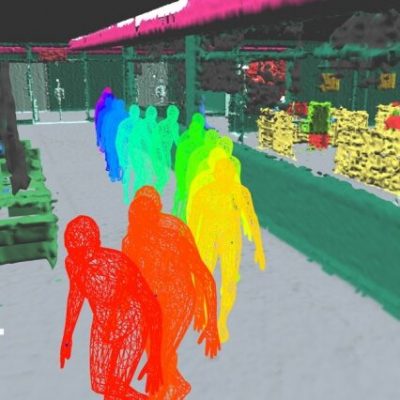Autonomous Systems & Decision-Making
As society relies more and more on uncrewed air, space, and ground systems to carry out complex missions with little oversight, the need for trusted, verifiable, self-learning autonomous systems and high-integrity algorithms has grown tremendously. Autonomy focuses on developing embodied intelligent systems, ranging from autonomous drones to self-driving cars and robots, that can physically operate in complex environments with minimal human supervision. Decision-making employs models and algorithms that make predictions about physical and environmental phenomena. Moreover, many of these algorithms are data-driven: autonomous systems need the ability to acquire data about their environments and adapt or refine their behavior in real-time.
Research in this area involves designing algorithms and systems that are able to perceive and build their own models of the world around them; to use those models for making complex decisions over long time and length scales; to maintain those models as the systems move around and as the world changes; to act in ways that are trustworthy and reliable when deployed in safety-critical and high-integrity applications, and enable more effective human-robot teamwork. Communication networks are a critical element of most modern air and space operations. In many instances, communication networks are essential for delivering mission-critical information and are therefore a key part of enabling autonomous operations. AeroAstro faculty are engaged in a wide range of research activities in the communications and networks area, including wireless and sensor networks, space networks, optical networks, and ultra-wideband communications. The overall goal of this research area is to build systems that can assist with dangerous or repetitive tasks, explore remote environments, and benefit society.
Key Focus Areas
- Autonomy
- Guidance
- Navigation
- Estimation
- Control
- Robotics
- Space and airborne communication networks
Affiliated Labs
- Autonomy and Embedded Robotics Accelerated (AERA) Research Group
- Aerospace Controls Lab
- Dynamics, Infrastructure Networks, And Mobility (DINaMo) Group
- Communications and Networking Research Group
- Low-Energy Autonomy and Navigation (LEAN) Research Group
- Model-Based Embedded and Robotics Systems Group
- Reliable Autonomous Systems Lab @ MIT (REALM)
- Robust Robotics Group
- Small Satellite Collaborative
- Space Telecom, Astronomy & Radiation Laboratory (STAR Lab)
- SPARK Lab
- Wireless Information & Network Sciences Lab














